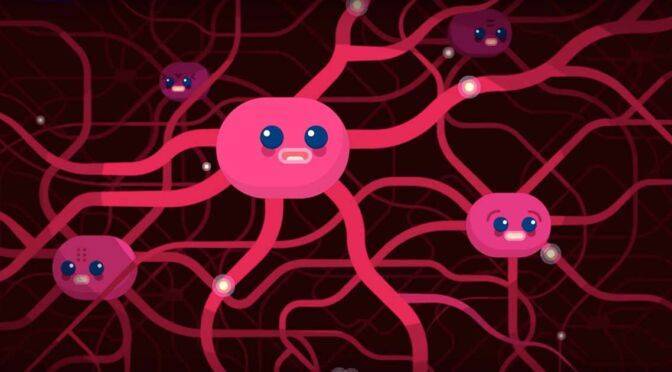Only just thinking about positive outcomes is pretty flimsy foundation for optimism and self-esteem. A strong foundation needs reinforcement.
To do that, we need to identify our unconscious negativity, and massage it out of our skulls.
Then, we need to reaffirm with positive words and actions.
Then, we need to reaffirm with positive words and actions.
Then, we need to reaffirm with positive words and actions…
(you get the idea)
Writing appears to be one of the most effective ways to achieve these important skills.
A group of high school students was given the following task for ten days to see what would happen. Before going to bed, they were to jot down three things they did well that day.
At first, nothing happened. (or so it seemed) BUT, with each passing month, for the next three months, the student’s happiness and well-being shot upward. This works approximately the same for adults.
The author of these famous studies, Martin Seligman, added that these effects do not fade away like placebos .

Consider:
If a mere ten days of reflecting on what we do well can lead to significant psychological improvement over several months, what could happen if we did this each day for one month? Dare ya.
Try it anytime you hate your job, your people, or your life.
Heck, why not try it if your life is all unicorns? Maybe you’ll trigger some sort of singularity of glitter and universal well-being.
When you’re scrubbing away at your negativity, it’s recommended that you activate as much of your brain as you can. Writing taps additional language centers in the brain that stack with those activated by general positive thinking. It adds up to a deeper, more permanent impact on your thinking.
If you’re listening to positive words/messages, reading uplifting books, thinking about your accomplishments or things you like about yourself, and you’re taking notes about it… you’re stimulating a lot of different centers of your brain with good vibes. It all compounds.
WARNING, THO:
Writing is a two-edged sword. Research suggests that If you write down negative feelings and thoughts or write about stressful things that have happened, you risk feeling even more emotionally distraught, and you are more likely to experience symptoms of illness.
Or, maybe not always… Because other research show that brief written commentaries can temporarily provide relief. As researchers at the University of Chicago discovered, “Simply writing about one’s worries before a high-stakes exam can boost test scores.”
My takeaway is that brevity is the key. Acknowledging your feelings in writing doesn’t have to mean slow-cooking your brain in a marinade of emotional tar.
If you’re looking for another strategy, try keeping a daily list of gratitudes. Research around the globe shows that it will improve your mood and your relationships.
A study of 221 young adolescents found that when they filled in a gratitude journal for three weeks, their feelings of wellbeing, optimism and life satisfaction were enhanced.
Children that are the best at gratitude are happier, have more friends, and are generally more positive than others. And when minority students wrote about themselves in positive ways, their sense of personal adequacy and integrity improved, along with their grades in school.
If you write down your goals with specifics, research shows that you are more likely to reach them.
Writing is powerful. We’d be leaving a lot of life on the table not to use it.

Dive Deeper
“A balanced psychology and a full life.”
Seligman M. E., Parks A. C., Steen T. Philosophical Transactions of the Royal Society of London: Series B, Biological Sciences. 2004 Sep 29; 359(1449):1379–81.
“Positive psychology progress: Empirical validation of interventions.”
Seligman M. E., Steen T. A., Park N, Peterson C. American Psychologist. 2005 Jul–Aug; 60(5):410–21.
“Journaling about stressful events: Effects of cognitive processing and emotional expression.”
Ullrich P. M., Lutgendorf S. K. Annals of Behavioral Medicine. 2002 Summer; 24(3):244–50.
“The effects of journaling for women with newly diagnosed breast cancer.”
Smith S, Anderson-Hanley C, Langrock A, Compas B. Psycho-Oncology. 2005 Dec; 14(12):1075–82.
“Writing about testing worries boosts exam performance in the classroom.”
Ramirez G, Beilock S. L. Science. 2011 Jan 14; 331(6014):211–13.
“The effects of counting blessings on subjective well-being: A gratitude intervention in a Spanish sample.”
Martínez-Martí M. L., Avia M. D., Hernández-Lloreda M. J. Spanish Journal of Psychology. 2010 Nov; 13(2):886-96.
“Counting blessings in early adolescents: An experimental study of gratitude and subjective well-being.”
Froh J. J., Sefick W. J., Emmons R. A. Journal of School Psychology. 2008 Apr; 46(2):213–33. Epub 2007 May 4.
“Counting blessings versus burdens: an experimental investigation of gratitude and subjective well-being in daily life.”
Emmons R. A., McCullough M. E. Journal of Personality and Social Psychology. 2003 Feb; 84(2):377–89.
“Gratitude and subjective well-being in early adolescence: Examining gender differences.”
Froh J. J., Yurkewicz C, Kashdan T. B. Journal of Adolescence. 2009 Jun; 32(3):633–50.
“Reducing the racial achievement gap: A social-psychological intervention.”
Cohen G. L., Garcia J, Apfel N, Master A. Science. 2006 Sep 1; 313(5791):1307–10.
“Personal goals and prolonged grief disorder symptoms.”
Boelen PA. Clinical Psychology and Psychotherapy. 2010 Dec 1. doi: 10.1002/cpp.731'
2-3X Your
Learning Speed

NeuroTip: Creative Writing Improves the Health of Your Mind
“Life is sometimes hard. Things go wrong, in life and in love, and in business, and in friendship, and in

Yawning is the Fastest Way to Hack Mental Stress and Focus
Most people think of yawning as just a sign of either being as bored as a sentient statue, or needing

Exploring the Nature of What We Are
This thought-provoking video essay by Kurzgesagt – In a Nutshell insightfully deconstructs the nature of what we are. https://www.youtube.com/watch?v=JQVmkDUkZT4 “Are you your body?

Why Too Much Stress is Enemy #1 to Your Brain Performance
✨ Just so you know… There is now a much cooler version of this post, IMHO. This old one mostly

